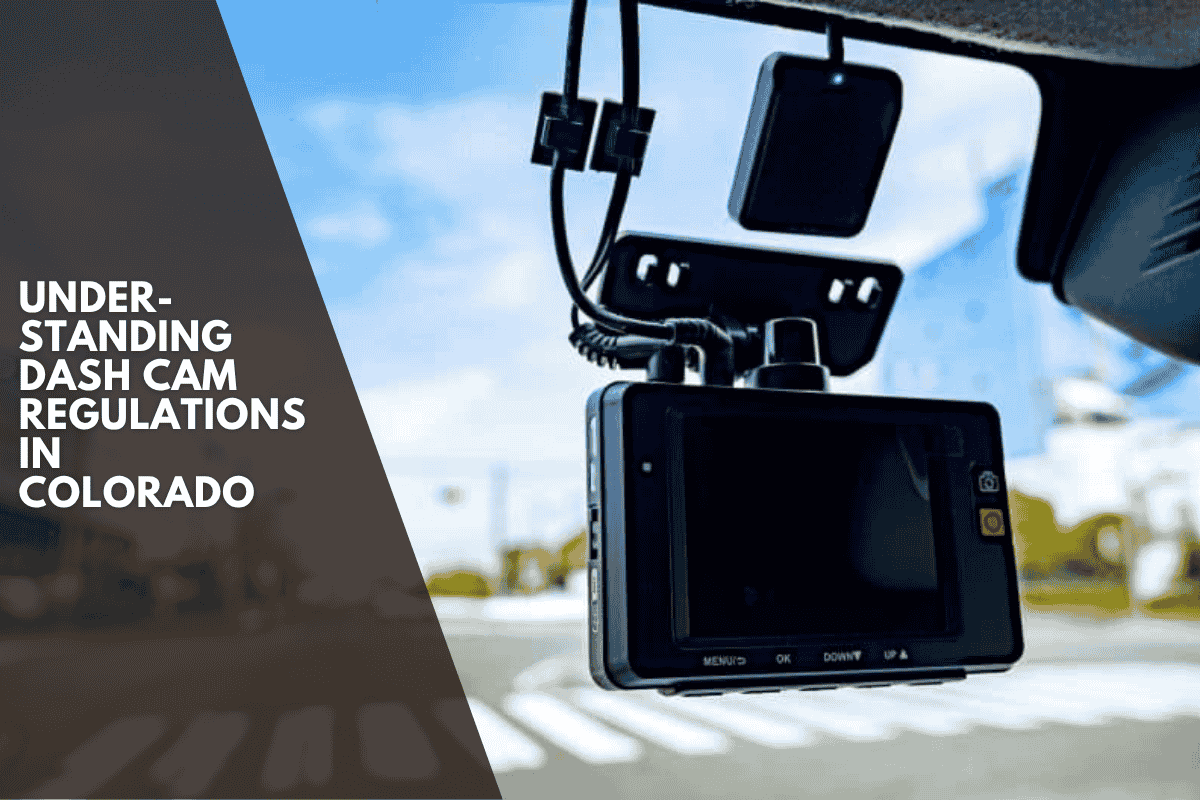Dash cams are fully legal for use in private vehicles throughout Colorado. Many drivers use these devices to document their journeys, protect themselves against false claims, and provide crucial evidence in the event of accidents. The state has not enacted any laws that specifically prohibit the installation or use of dash cameras in personal vehicles.
Rules on Mounting and Placement
While dash cams themselves are legal, Colorado law does regulate where and how they can be mounted. The primary requirement is that dash cams must not obstruct the driver’s view through the windshield or windows. Devices that are mounted in a way that impairs visibility could violate state law, especially if they create glare or reflective surfaces that distract the driver.
In cities like Denver, local ordinances such as Ordinance 54-124 further emphasize that a driver’s vision through all windows must remain “normal and unobstructed.” Improper placement of a dash cam could result in a citation or be considered a liability in the event of an accident.
Audio Recording and Consent Laws
Colorado is a one-party consent state for audio recordings. This means that you are legally allowed to record audio in your vehicle as long as at least one party involved in the conversation (which could be you) consents to the recording.
However, if your dash cam records conversations with passengers who are unaware of the recording, it is good practice to inform them to avoid any potential legal disputes.
Admissibility of Dash Cam Footage
Footage captured by dash cams is generally admissible in Colorado courts, provided it has not been altered or tampered with. Such recordings can be vital evidence in accident claims, insurance disputes, and investigations involving hit-and-run incidents.
Hands-Free Law and Electronic Devices
As of January 1, 2025, Colorado enforces a hands-free law that prohibits drivers from holding or manually using mobile electronic devices while driving. Dash cams that are securely mounted and operate automatically do not fall under this restriction, as long as they do not distract the driver or block their view.
Police Access to Dash Cam Recordings
Law enforcement officers in Colorado cannot confiscate your dash cam or access its recordings without a subpoena or court order. If police want to review your footage, they must follow proper legal procedures. Deleting or tampering with footage after an incident could be considered obstruction of an investigation and may result in criminal charges.
Dash cams are legal in Colorado, but drivers must ensure they are mounted in a way that does not obstruct visibility or violate local ordinances. Colorado’s one-party consent law allows for audio recording, but informing passengers is recommended.
Dash cam footage is generally admissible in court, and police need a subpoena to access your recordings. By following these regulations, drivers can use dash cams safely and legally across the state.
Sources
[1] https://www.codot.gov/safety/distracteddriving/colorado-hands-free-law
[2] https://www.ddpai.com/blog/dash-cam-laws/
[3] https://www.codot.gov/news/2025/june/colorado-speed-enforcement-program-starts-on-co119
[4] https://leg.colorado.gov/bills/sb24-065
[5] https://www.mydenveraccidentlawfirm.com/news-resources/what-you-need-to-know-before-using-a-dashcam-in-colorado/











